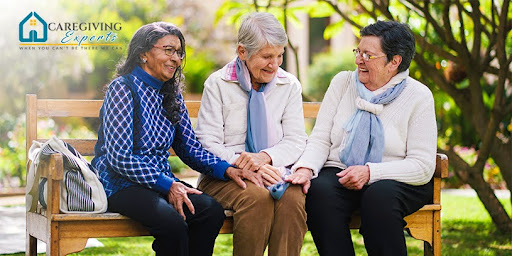Introduction
As we age, we are often confronted with physical limitations and changes in our lifestyles that can significantly impact our social interactions. For many elderly individuals, these changes can lead to feelings of isolation and loneliness, as mobility decreases and opportunities for socialization become more limited. The consequences of loneliness among the elderly can be severe, contributing to mental health issues such as depression and a decline in overall well-being. Recognizing the profound impact of loneliness on the elderly, it becomes imperative to explore solutions that not only address their practical needs but also provide emotional support and companionship. In recent years, senior companionship services have emerged as a powerful tool in combating loneliness among the elderly, offering companionship, engagement, and practical assistance to those in need.
Understanding the Issue
As individuals age, they often face challenges that can limit their mobility and physical abilities. For many elderly individuals, these limitations result in becoming home-bound and increasingly isolated from social interactions. This isolation can lead to profound feelings of loneliness, which, if left unaddressed, can contribute to mental health problems such as depression. Recognizing the severity of this issue is crucial in finding effective solutions to combat elderly loneliness.
Addressing Elderly Loneliness Through Senior Companionship
We will explore the role of senior companionship services in providing support and connection to elderly individuals, as well as the various activities and benefits associated with these services. By understanding the importance of companionship in later life and the ways in which senior companionship services can make a difference, we can work towards creating a more compassionate and inclusive society for our aging population.
-
The Power of Companionship
One effective solution to combating loneliness in the elderly is through the provision of senior companions and elder companionship services. These services offer more than just practical assistance; they provide invaluable companionship and emotional support to seniors who may otherwise feel isolated. By offering company and engaging in meaningful conversations, senior companions help alleviate feelings of loneliness and provide a sense of belonging to the elderly individuals they serve.
-
Activities to Foster Connection
Senior companionship services offer a wide range of activities designed to foster connection and engagement between companions and the elderly individuals they assist. These activities include spending quiet time together, such as reading, knitting, or watching television, which not only provide companionship but also promote relaxation and enjoyment. Additionally, companions may accompany seniors on walks or exercise sessions, encouraging physical activity and social interaction.
-
Enhancing Quality of Life
Beyond simple companionship, senior companionship services aim to enhance the overall quality of life for elderly individuals. This may involve taking seniors to enjoyable locations like the park, where they can experience the outdoors and connect with nature. Engaging in activities such as playing cards or board games not only provides entertainment but also stimulates cognitive function and social interaction.
-
Practical Support
In addition to providing companionship and engaging in recreational activities, senior companionship services also offer practical support to elderly individuals. This may include assisting with household chores, such as light gardening or tidying up, which can alleviate the burden on seniors and promote a sense of well-being. Companions may also help with personal care tasks, ensuring that seniors maintain their hygiene and overall health.
-
Peace of Mind for Families
One of the often-overlooked benefits of senior companionship services is the peace of mind they provide to the families of elderly individuals. Knowing that their loved ones are not only receiving practical assistance but also companionship and emotional support can alleviate stress and worry for family members. Additionally, companions regularly check on seniors to ensure they are in good condition and good spirits, providing reassurance to family and friends alike.
Ready to make a difference? Join Caregiving Expert in combating elderly loneliness by becoming a senior companion. Your companionship can brighten someone’s day and make a lasting impact. Take the first step today and bring joy to the lives of the elderly.
Conclusion
In conclusion, senior companionship services play a vital role in combating loneliness in the elderly by providing companionship, engagement, and practical support. By recognizing the importance of social connections and investing in programs that prioritize the well-being of elderly individuals, we can create a more inclusive and supportive society for people of all ages.
FAQs about Senior Companionship Services
- What is a senior companion?
A senior companion is a trained individual who provides companionship, emotional support, and practical assistance to elderly individuals who may be experiencing loneliness or isolation.
- How can senior companionship services benefit elderly individuals?
Senior companionship services offer various benefits, including reducing feelings of loneliness, providing social engagement, promoting physical activity, offering practical assistance with daily tasks, and improving overall well-being.
- How do senior companions spend time with the elderly?
Senior companions engage in a range of activities with the elderly, such as conversation, reading, watching television, going for walks, playing games, participating in hobbies, assisting with household chores, and accompanying seniors to appointments or outings.
- Who can benefit from senior companionship services?
Elderly individuals who are experiencing loneliness, isolation, or limited mobility can benefit from senior companionship services. These services are also beneficial for family members who may be seeking additional support for their aging loved ones.
- How can I get involved with senior companionship programs?
There are several ways to get involved with senior companionship programs, including volunteering as a companion, supporting local organizations that provide these services, advocating for funding and resources, or simply reaching out to elderly individuals in your community to offer companionship and support.


